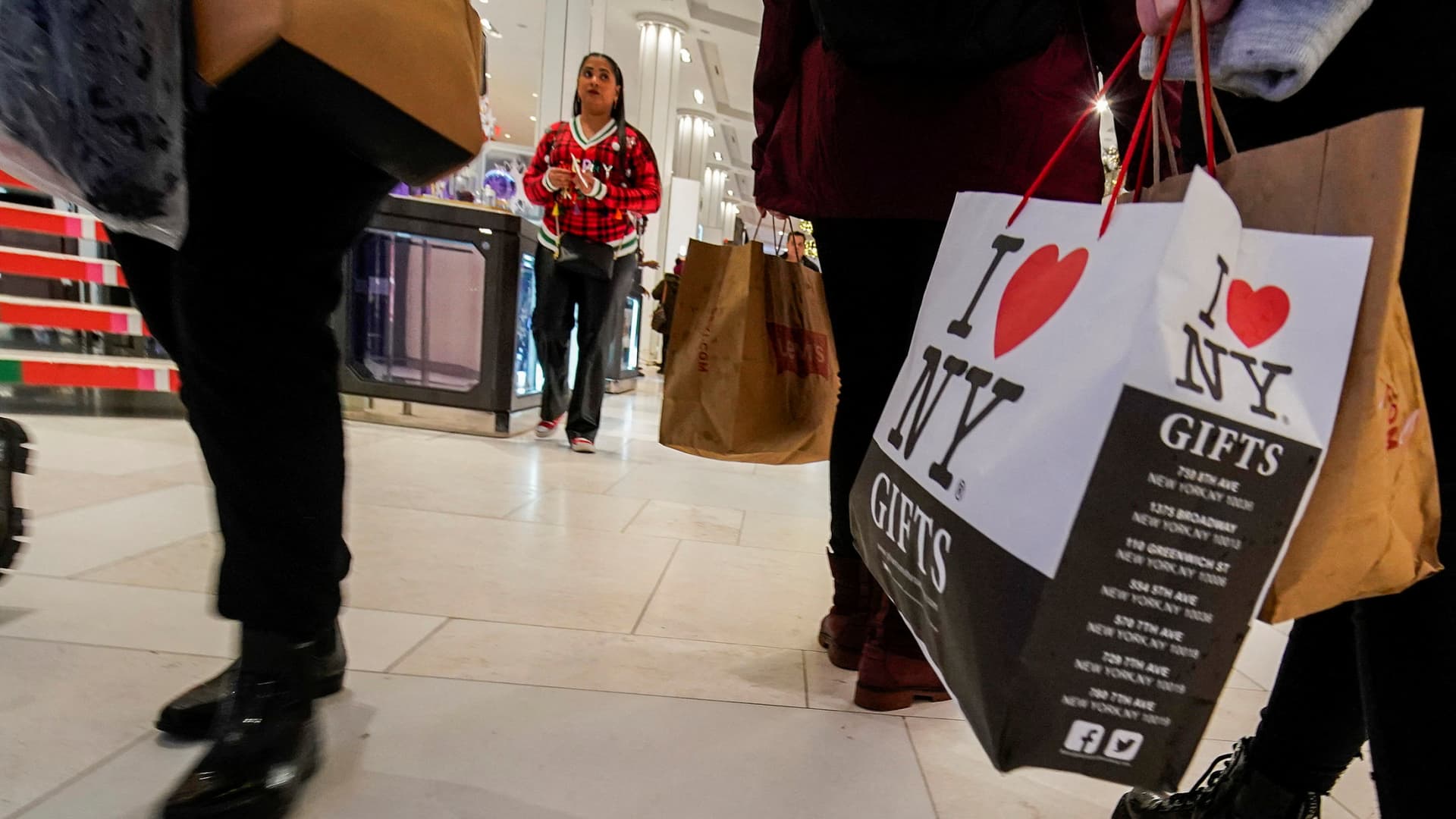Americans often splurge on gifts during the holidays.
This year, holiday spending from Nov. 1 through Dec. 31 is expected to increase to a record total of $979.5 billion to $989 billion, according to the National Retail Federation.
Even as credit card debt tops $1.14 trillion, holiday shoppers expect to spend, on average, $1,778, up 8% compared to last year, Deloitte’s holiday retail survey found.
Meanwhile, 28% of holiday shoppers still haven’t paid off the gifts they purchased for their loved ones last year, according to another holiday spending report by NerdWallet.
How shoppers pay for holiday gifts
Heading into the peak holiday shopping season, 74% of shoppers plan to use credit cards to make their purchases, NerdWallet found.
Another 28% will tap savings to buy holiday gifts and 16% will lean on buy now, pay later services. NerdWallet polled more than 1,700 adults in September.
More from Personal Finance:
Could buy now, pay later loans affect your credit score?
Americans can’t stop ‘spaving’ — how to avoid this financial trap
Don’t believe these money misconceptions
Buy now, pay later is now one of the fastest-growing categories in consumer finance and is only expected to become more popular in the months ahead, according to the most recent data from Adobe. Adobe forecasts BNPL spending will peak on Cyber Monday with a new single-day-record of $993 million.
However, buy now, pay later loans can be especially hard to track, making it easier for more consumers to get in over their heads, some experts have cautioned — even more than credit cards, which are simpler to account for, despite sky-high interest rates.
The problem with credit cards and BNPL
To be sure, credit cards are one of the most expensive ways to borrow money. The average credit card charges more than 20% — near an all-time high.
Alternatively, the option to pay in installments can make financial sense, especially at 0%.
And yet, buy now, pay later loans “are just another form of credit, disguised as something for free,” said Howard Dvorkin, a certified public accountant and the chairman of Debt.com.
The more BNPL accounts open at once, the more prone consumers become to overspending, missed or late payments and poor credit history, other research shows.
If a consumer misses a payment, there could be late fees, deferred interest or other penalties, depending on the lender. In some cases, those interest rates can be as high as 30%, rivaling the highest credit card charges.
“This is just another way for financers to put their hands in the pocket of consumers,” Dvorkin said. “It’s a trojan horse.”
